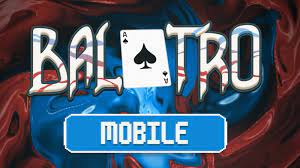The Joker card, often seen as a wildcard in card games, jokercard balance embodies a rich tapestry of meanings that transcends its simple role in gameplay. Known for its unique ability to represent any card, the Joker is a symbol of unpredictability, mischief, and boundless creativity. In this article, we will explore the history, symbolism, and cultural significance of the Joker card, highlighting its evolution from a mere game piece to a multifaceted cultural icon.
Historical Background
The origins of the Joker card can be traced back to the game of Euchre, which became popular in the United States during the 19th century. The Joker was initially created as a trump card to enhance gameplay, but its distinct design and versatile role soon allowed it to transcend its original purpose. As card games evolved, so did the Joker, making its way into various decks and games, eventually becoming a standard card in modern playing card sets.
Over time, the Joker’s design has varied significantly. Early Jokers were often depicted as a jester or harlequin, adorned in colorful attire and equipped with whimsical features. These images were not just for show; they carried deep-rooted connotations of trickery and folly, harking back to the medieval court jesters who entertained kings and queens while often speaking uncomfortable truths under the guise of humor.
Symbolism of the Joker Card
The Joker card is rich in symbolism, representing various themes that resonate across cultures. Here are a few notable interpretations:
1. Chaos and Unpredictability
The Joker is often viewed as a symbol of chaos. In games, its wildcard nature can disrupt established strategies and create unexpected outcomes. This unpredictability is mirrored in life, where the unexpected can lead to new opportunities or challenges. The Joker reminds us that order can give way to chaos, and that embracing the unknown can lead to growth and transformation.
2. Freedom and Nonconformity
As a card that can take on any value, the Joker embodies freedom and the idea of breaking free from conventions. It encourages players to think outside the box and embrace creativity. In a broader cultural context, the Joker represents the spirit of rebellion against societal norms and expectations, celebrating individuality and self-expression.
3. Duality of Nature
The Joker also reflects the duality inherent in human nature. It can represent both the playful and the sinister aspects of life. This duality is often portrayed in popular culture, where the Joker character appears in various forms—from the mischievous trickster to the dark and malevolent villain. This complexity makes the Joker a fascinating figure, capable of embodying both humor and horror.
Cultural Significance
Throughout history, the Joker card has found its way into literature, film, and art, evolving into a powerful cultural symbol.
1. Literature and Film
The Joker has made a significant impact in literature and film, most notably as a character in the Batman franchise. The Joker in these narratives often embodies chaos, challenging the order represented by Batman. His unpredictable nature captivates audiences, highlighting the delicate balance between good and evil. Films like The Dark Knight showcase the Joker as a complex antagonist, raising questions about morality, sanity, and societal norms.
2. Art and Performance
In the realm of art and performance, the Joker archetype has inspired countless artists, musicians, and performers. From Shakespearean fools to contemporary circus performers, the figure of the jester or clown has served as a means of exploring deeper truths through humor and absurdity. The Joker card itself has also become a popular motif in visual arts, representing the intersection of chaos and creativity.
3. Psychological Interpretations
Psychologically, the Joker can symbolize the shadow aspect of the self—the parts of our personality that we often hide or suppress. Carl Jung’s concept of the shadow suggests that embracing our darker qualities can lead to personal growth and self-awareness. The Joker card serves as a reminder to acknowledge and integrate these hidden aspects, encouraging a more holistic understanding of ourselves.
Conclusion
The Joker card, with its whimsical design and multifaceted symbolism, represents much more than a simple game piece. It embodies the complexity of life, inviting us to embrace chaos, celebrate creativity, and confront our dual natures. As it continues to evolve in popular culture, the Joker will likely remain a potent symbol of unpredictability and individuality for generations to come. Whether viewed as a playful trickster or a dark harbinger of chaos, the Joker card serves as a reminder of the beauty found in life’s uncertainties and the creative possibilities that arise from them.

